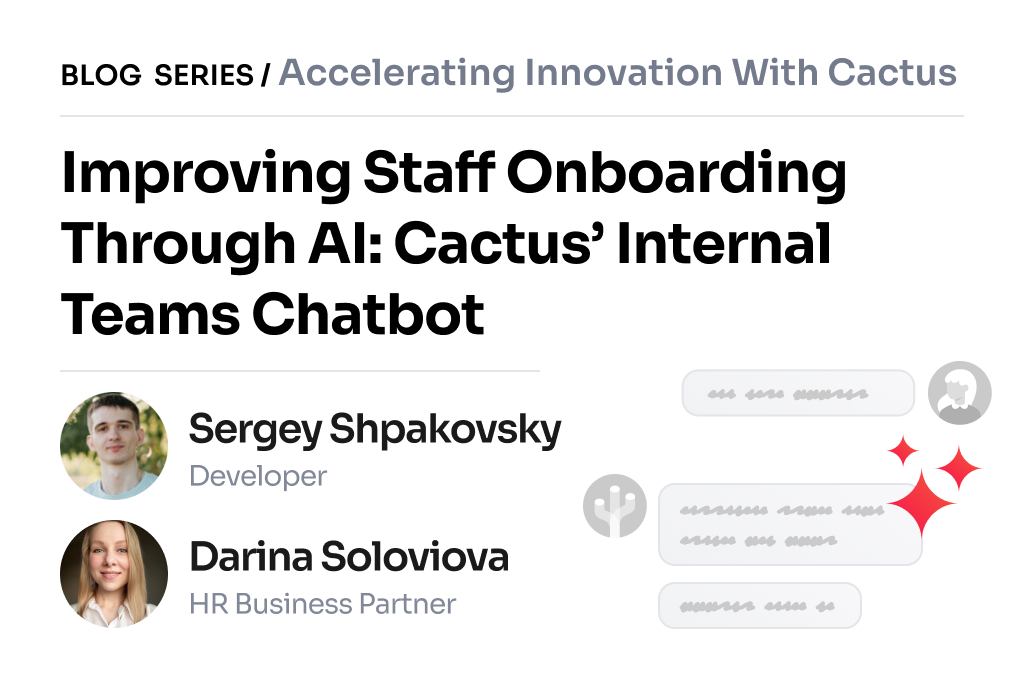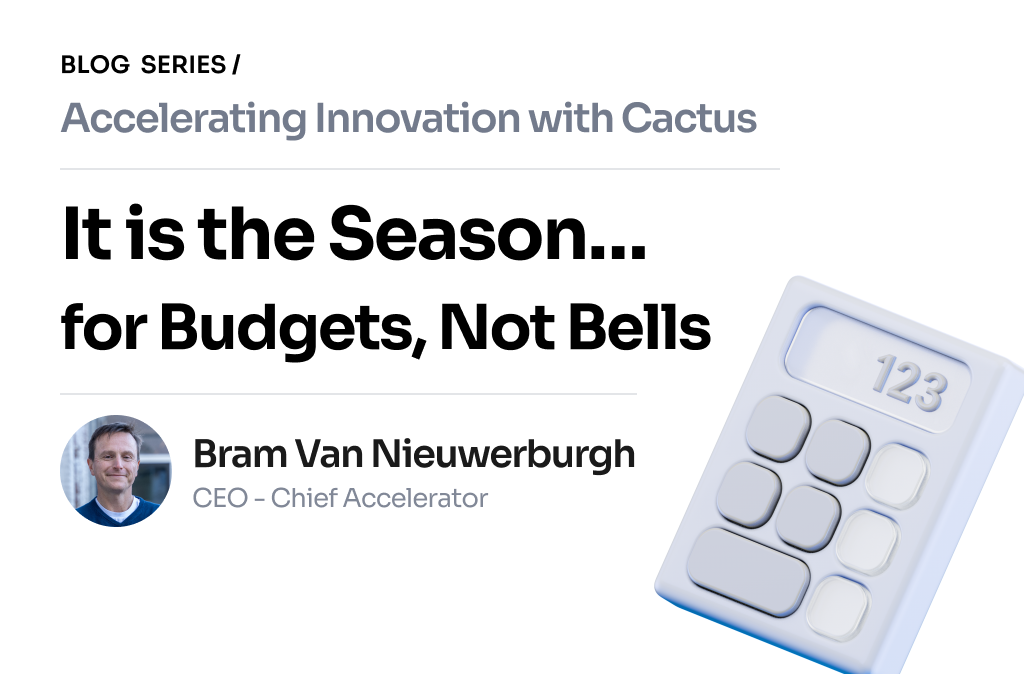Jan Cools is the CEO of Be-Mobile, the smart mobility company owned by the largest mobile operator in Belgium: Proximus. The company was looking for a partner to help with the development of their products, and after some in-depth research, it chose CactusSoft in Belarus. Onliner.by met with Jan and his colleague, Ines Merckaert, and found out what the Belgians think about the Belarusian IT industry.
Read the interview in Russian >>>
Cost isn’t the main factor behind the choice
– You were looking for developers in seven countries before you came to Belarus. Is that right?
That’s true. Be-Mobile itself is a smart mobility company, and we work in all of Europe, the USA and Latin America. We were growing the business and we were in need of developers. From the companies based in Belgium, we couldn’t find qualified people for short term work. So, we started to look for a solution outside of Belgium, and we basically looked at three options. The first one was southern Europe—Portugal, Spain—as these were in economic crisis.

We had also been looking at Eastern Europe—Hungary, Bulgaria, Poland, Belarus—and Brazil. We had an office in Brazil and they were also experiencing a financial crisis. Finally, we ended up in Belarus, which was the natural choice. We selected it based on different criteria, and these were not driven by price alone—to make it clear, the price wasn’t the most important factor. For us, it was a combination of the quality of the education, the discipline and reliability of the people you work with, and references from other companies we know that have been working here.
Price was one of the criteria, but again not the most important one, and we also considered the ease of speaking with remote teams—language, time difference, etc. From all of these considerations, we arrived at Belarus.
– Maybe it’s hard to believe that Belarusian developers have unique skills—can you change our minds?
For us, we first looked at the quality of education. I think that in Belarus this is really very high. We also believe that Belarus has a ‘high-tech spirit’, which you don’t find so much in Poland, for example. There, they also have many IT companies, but they don’t have the same spirit that we found here in Belarus.
You don’t have many outsourcing companies, but you have great well-known product companies that have been sold on, like MSQRD. So, we felt that there was a good combination of education and culture in Belarus, making this choice very practical for us.
There is also a warm climate for development, and don’t forget the government impact; the government did a tremendous job adapting fiscal rules and creating opportunities to stimulate software company development.
Differences between developers in India, Belarus, Belgium
– What about the developers from India and China?
A few years ago, before we came to Belarus, we had been looking at and evaluating the possibility of moving to India, Pakistan, or China. But honestly, it’s totally different. Both from our own experience and from colleagues’ experiences, we know that the cultural differences are too big.
Secondly, I think there is a huge difference in communication and timing.
Thirdly, the way you deal with people, having direct contact with the team and understanding that you are all doing one job, means it feels much more natural for us as a Belgian company to deal with you [Belarusian people]—it feels like we are on the same team, with Indian and Chinese people it’s different.
– You’ve mentioned some cultural differences between European people and Indian? What are they regarding professional skills?
You really have to sit on them [Asian developers] to make sure that they do the right thing. They don’t give feedback, and you have to check everything yourself. So, you have totally different tasks and results. They don’t ask, ‘Is what I’m doing correctly? Is this relevant?’; they just execute the task.
That is the difference between Indians and Belarusians, but I can’t really make such broad claims, as I only work with CactusSoft, and I don’t know much about other companies. The people here think about the task, they don’t just execute it. They try to think about what the right solution is, and for me that’s something I would like to encourage people to do even more.
That’s why we like to work with CactusSoft—we really want to see people here as an extension of our team in Belgium. It’s all one team for us.
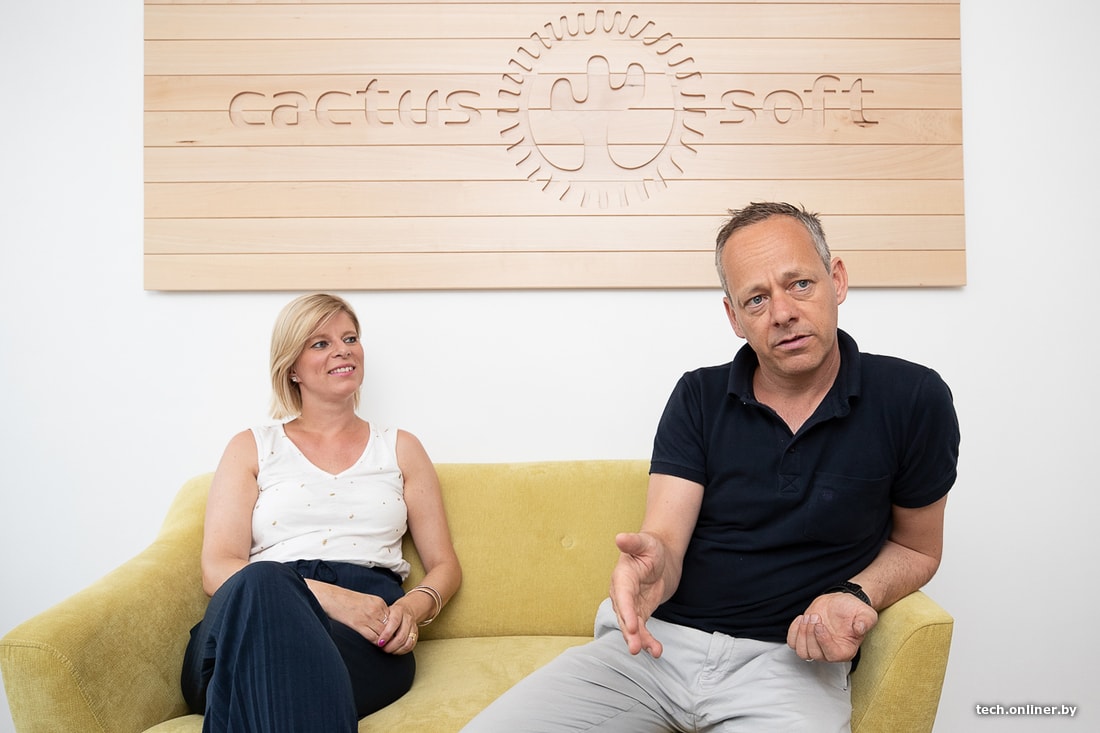
Then, if you look at the difference between Belgium and Belarus, we would say that Belgian employees can take even more ownership of a problem, a lot more ownership—they are more entrepreneurial. The Belgian developers are very direct. We don’t have the same kind of hierarchies as you do here.
In Belarusian companies the boss is the boss. I’m also the boss, but people can tell me anything they want, and I won’t take it badly. I’ll even encourage them to tell me what they think because otherwise it’s just smoke and mirrors and you create frustration for your workers.
– A few years ago there was a focus on outsourcing companies, but recently the situation has changed and we are seeing many product companies. Is the situation similar in Belgium?
There is always a split.
I think it’s quite similar to what you see in Belarus, but in Belgium it started happening a little bit earlier, so there is a lot of venture capital, there’s a lot of private equity that’s been invested, and companies that produce products or web services and software as a service models, but there are also a lot of traditional companies that have been digitalizing.
Alongside this, we also have large outsourcing companies that don’t produce anything, but deliver services to traditional non-IT companies, for example, banks, telecom operators, and governments, who need to digitalize the material they work with. The big difference is that the fees for the developers who do outsource from Belgium companies are really high.
That’s why I see huge potential for nearshoring industry here in Belarus—it would be good to try to provide more services for traditional companies in Belgium, as well as the Netherlands, France, and Germany.
– Here we have High-tech Park (HTP), which was founded by the government. Do you have anything like this in Belgium?
We have few things like grants for innovation or for subsidies, but it’s incomparable with HTP—it doesn’t even come close. Be-Mobile is a technology company and we pay 34% tax. In HTP you pay 0%. If you have a salary of €1000, it would cost the company almost €3000, including all of the social security rates and taxes.
So, it’s incomparable with HTP, and I think this is going to create a big boost.
The only thing we fear regarding Belarus is that, after a certain period of time, the developers will become so active that companies from Russia and Ukraine will bring their companies here and grow their business in that way.
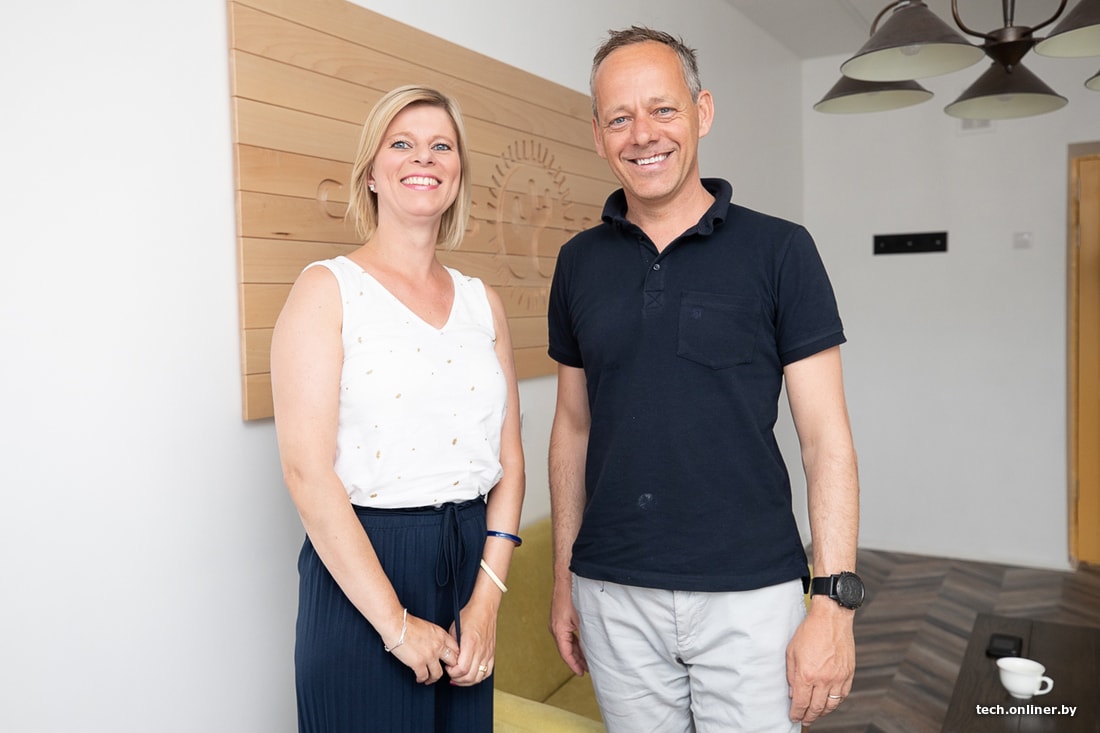
– If they were to create such conditions for IT companies in Belgium, would it have a negative impact on the Belgian economy?
There are a lot of mechanisms in Belgium that you don’t have in Belarus: we have a very complex system of venture capital and private equity. You have it here too, but on a smaller scale, and it’s easier to get money from investors in Belgium if you have plans and ideas. However, companies are highly taxed and the social security system is very expensive, and I don’t think the government has the ability to establish something like HTP. It would cost them too much money. So, in answer to this question, maybe our economy would bloom, but the government would need to collect the taxes from somewhere else.
Impressions of Belarus
– When was your first visit to Belarus?
Two years ago, Ines and myself were looking for a good company that could help us. It was very easy to get in contact with different potential candidates, but once we met CactusSoft, that was our choice. Since then, this must be my tenth time here.
– Before coming to Belarus, what did you know about this country?
That’s a good question! I knew about Belarus from companies in my business—there is a company called Gurtam that I have been working with for a few years. We calculate traffic information based on the GPS-positions of moving vehicles, so Gurtam was our unique information provider. I have worked with them since and been impressed by the professionalism, ambition, and marketing of your companies.
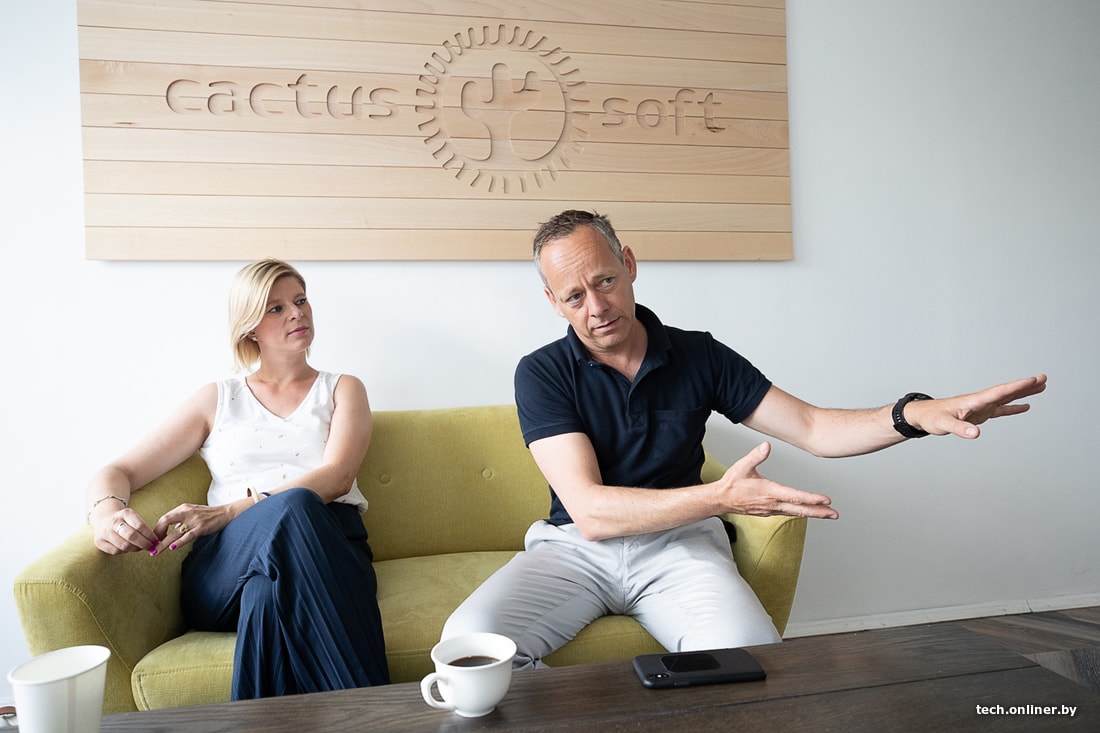
– Our classic request of all visitors: give us your personal impression of Belarus, business concerns aside.
For us Belarus was really an unknown, which is a pity.
It’s not far away—we can fly here in two and a half hours, the same as to Paris or Amsterdam. You have friendly and ambitious people, beautiful landscapes, and good food, so it’s a very nice country with a similar mentality to that of Belgium.
Belgium is a small country too, about 11 million people live there, and that’s why we are open to the world, otherwise, you can’t do business. Belarus is also open-minded and we both invite people from other countries. Your people are open to learning, especially to learning languages: you speak English much better than lots of people, even compared to the French, who are our neighbours.




